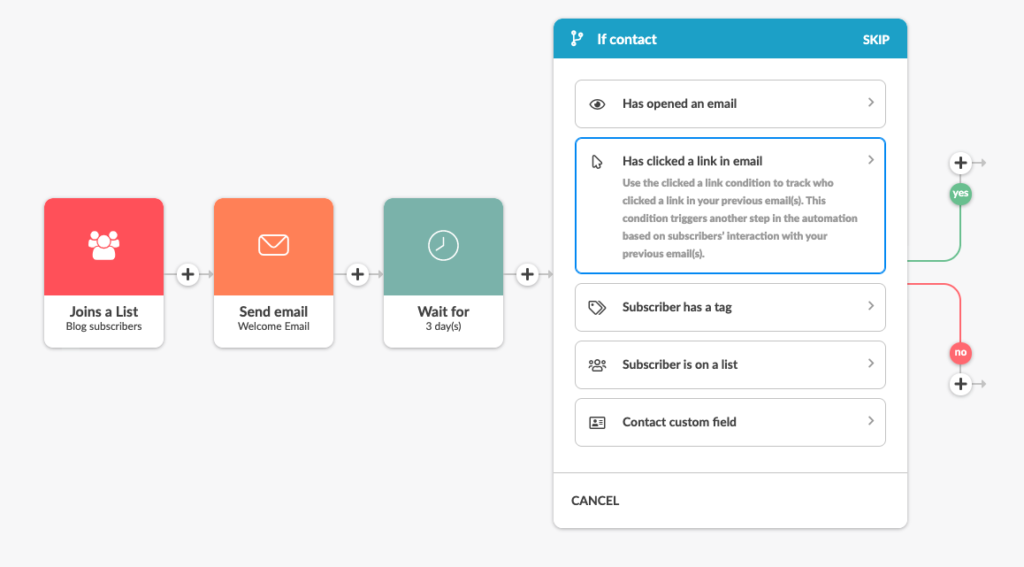Recommended Advice To Selecting An Email List Site
Wiki Article
What Factors Should I Consider Prior To Purchasing A Cpa Email List?
To ensure your CPA (Certified Public Accountant) email list is compliant, relevant and high-quality it is essential to look at the following key elements. The most important thing to consider is: 1. Data Quality and Accuracy
Source of Data: Check the origin of the list. Reputable suppliers usually collect information from sources like directories of professional, databases and trade associations. Avoid lists created using scraping and unreliable methods as they could contain outdated or inaccurate data.
Verification: Check that the email address list has been recently verified. It will reduce bounce rates, and also ensure that the addresses on the list are legitimate. Ask how often this list is updated and cleaned as CPAs often change companies or positions.
Segmentation & Filters: A CPA list that is useful should include options such as segmentation by the location (city or state, or even country) and specialization in specific industries (e.g. taxation, auditing and financial planning) and the number of years of experience, firm size, etc. Your marketing campaigns are more relevant by utilizing targeted specific targeting.
2. Legal Regulations
Data Privacy Laws - Ensure that the email lists are compliant with local and national regulations including the California Consumer Privacy Act. The list should contain email addresses that have been obtained legally and only with consent.
Conformity with the CAN-SPAM Act. For U.S. emails campaigns, the list must conform to the CAN-SPAM Act. The Act regulates commercial electronic communication. It is crucial to offer opt-out options, and avoid making use of misleading subject lines or content. Failure to comply could result in fines and legal issues.
Opt In Consent: Make sure that you have obtained the email address through an opt in consent. That is, recipients who have opted in consent to being contacted by marketers from third parties. This will increase engagement and reduce spam complaints.
3. Provider Reputation
Check the reputation of the service. Check out reviews, testimonials as well as case studies to find out what other customers think. Established providers will be more likely to offer reliable, high-quality data.
Transparency - The provider must be transparent as to how data is collected and updated. It's a warning sign if the provider can't be able to clearly explain their methodology.
Customer Support: A reliable and dependable support service is vital if you require assistance with making lists, troubleshooting issues or understanding compliance regulations. A well-trained support team can save both time and energy during the campaign process.
4. Cost and ROI
Pricing Models. Different service providers offer different pricing structures. Certain charge per contact and others have a flat-fee or a subscription. Examine ROI with costs and balance price with high-end.
Refund Policy: Ask whether the service provider has an exchange or refund policy in the event that a large number of email addresses are incorrect or are invalid. A guarantee gives assurance.
Cost is not the same as. Value: Don't concentrate only on the price. It's tempting to buy a cheaper list, but if the quality is poor this could lead to low participation as well as large bounce rates. Choose lists that have high precision, accuracy of data, and segmentation value.
5. Ownership and usage of data
Multi-Use vs. Single-Use: Decide if you plan to buy the list once or own it and use it for future campaigns. Costs for databases that are solely used could be lower, but you will have greater flexibility in the long run when you purchase the data.
Exclusive vs. Shared Lists: Choose whether the email list is exclusively to you, or if it is shared with other customers. Lists shared with others could cause people becoming exhausted if they've received a lot of marketing emails.
6. Data Format and Integration
CRM Compatibility. Make sure your list is sent in a format that is compatible with the CRM application that you use, or to promote email marketing, such as CSV. This will ensure easy management of data as well as its import.
Usability: Check how easily data can be divided and managed after integration into your system. Personalization and targeting is more efficient with a well-organized lists.
7. Ethical Aspects
Relevance of content: CPAs can be professional professionals who are busy. Therefore, it is important to send them relevant and useful content. In the event that you send out spammy or irrelevant messages, it could harm your reputation and lead to more complaints.
Avoid over-emailing: Be aware of the frequency with which you send out emails to people on your list. Over-communication might lead to unsubscribes from your list, or even spam complaints. Both of these can negatively impact your sender’s rep.
Conclusion
When you purchase a CPA email list, prioritize data quality as well as legal compliance and the reputation of the service provider to ensure your investment is worthwhile. Effective segmentation and ethical methods can increase the amount of engagement and ROI and ensure a positive perception of your brand. Read the expert cpa email list for blog advice.

What Are The Things I Should Consider Before Purchasing The Urgent Care Email List?
If you're considering purchasing an email urgent care list, make sure to consider a variety of factors. These include whether the list will be accurate, effective and compliant legally, as well as relevant to your marketing goal. Here are the main considerations:1. Data Quality & Accuracy
Source of Data: Ensure the data provider gets their information from reliable sources such as medical associations, healthcare databases or professional directories. Avoid lists generated by scraping data or unreliable means, since they may contain incorrect and outdated information.
Verification process: Confirmation the list of email addresses is frequently updated and verified. An authentic email service will follow a strict verification process that removes outdated, invalid or duplicate emails. This ensures high deliverability and reduces bounce rates.
Segmentation and Targeting The list should include segmentation options such as location (city or region, state or city) and the size of the urgent care facility, specialties offered (e.g., pediatrics, diagnostics) and the decision-makers' roles (e.g. doctors, practice owners, etc.). Targeted list improves the relevance of your outreach and improves engagement rates.
2. Conformity with Legal Regulations
Data Privacy Laws – Ensure that your list complies fully with the relevant data protection laws. These include the General Data Protection Regulations (GDPR) for Europe as well as the California Consumer Privacy Acts (CCPA) for the U.S. and other local regulations. This means email addresses should be collected with consent and processed in a legal manner.
Compliance with the CANSPAM Act Compliance with CANSPAM Act: All email marketing campaigns within the U.S. must adhere to the CANSPAM Act. It is crucial to provide an easy and simple opt-out option, avoid making use of misleading subject lines as well as your physical address for mailing. Infractions could lead to penalties or damage to the brand image.
Opt-In Consent: Make sure the email addresses in your database are acquired through explicit opt-in consent. This means that the recipient have consented to being contact by third companies for marketing purposes. This will reduce the chance of receiving spam complaints or legal concerns.
3. Provider Reputation
Establish Provider: Choose one that has an established track record of providing quality, compliant email lists. Look through testimonials, reviews or case studies of past clients to determine the service's reliability and customer satisfaction.
Transparency: The provider should be able to explain how the data was sourced and how often it's updated. If the company isn't able to give clear information about their methods of collecting data this could indicate low-quality data.
Customer Support: A dependable support staff is vital for those who require help with technical problems as well as list customization or conformity. A responsive service provider can aid you in maximizing the use of your email database.
4. Costs and Return on Investement (ROI).
Pricing Models: Email list providers generally have different pricing models, such as pay-per-contact or flat fees. The pricing model should be assessed in conjunction with the marketing budget you have and the return on investment you anticipate. You should balance the price of the list against the quality and relevancy of data.
Refund or Replacement Policy: Trustworthy companies often provide an option to return or replace the item if a significant part of the addresses are invalid or undeliverable. Be sure to understand the conditions and terms of the policy before you make a purchase.
Cost-effective: Concentrate on lists that are valuable with precise information and segmentation. Investing money in a quality list will boost the rate of engagement and offer you a better ROI on your investment.
5. Data Ownership and Usage
Lists that can be used several times or just for one campaign: Be sure to specify if the list is meant to be used once, or multiple times. Lists that permit multiple uses are more valuable, particularly if you plan to run ongoing outreach campaigns.
Exclusive vs. Shared Lists: Determine whether the list is exclusive to your company or shared with other buyers. Shared lists can lead to list fatigue as recipients may receive multiple advertising messages. Engagement rates are likely to decrease.
6. Data Integration and Format
CRM Compatibility. Ensure your email list is delivered in formats compatible with the software you are using to manage your email marketing or customer relationship management, like CSV or Excel. This will ensure a smooth integration and enable you to start your campaign swiftly.
Easy to Use: Email lists should be manageable and easily segmented by specific requirements. Targeting and personalization will be more effective with an organized list.
7. Ethical Concerns
Content's relevance and value Content's value and relevance: Urgent care providers are busy professionals, so the content you share with them should be useful and relevant. Make sure you send messages that meet their specific needs. Inadequate messages could damage your brand’s reputation and reduce engagement.
Be aware of the frequency with which you send emails. Inadequate or unwelcome emails could cause spam complaints and reduce your sender reputation.
The article's conclusion is:
Be sure to consider accuracy of data and legal compliance when buying the urgent care database. Also, consider the reputation of the vendor. Lists should be segmented regularly and should adhere to privacy laws. You can increase engagement through investing in a targeted, high-quality list and sending relevant content. View the top urgent care email list for more recommendations.
